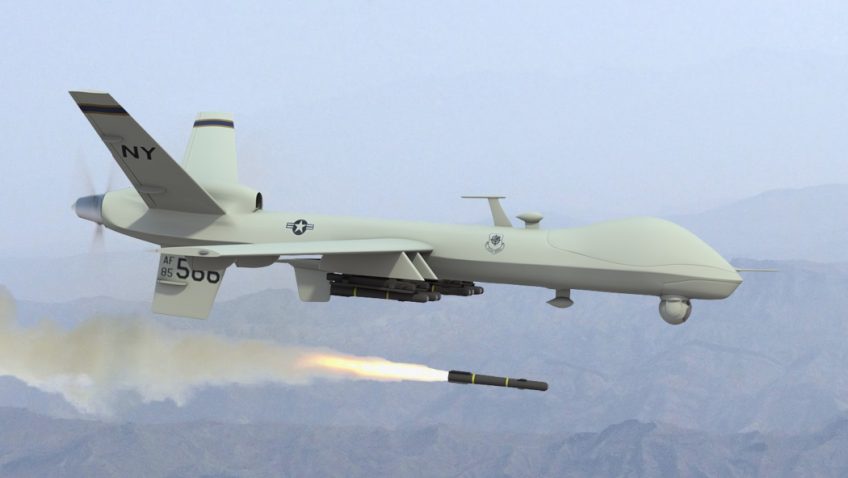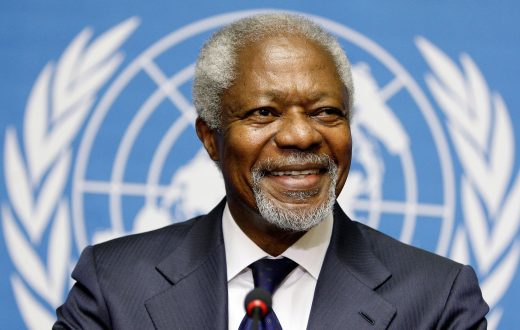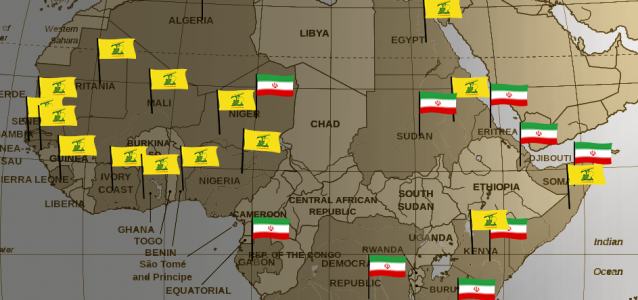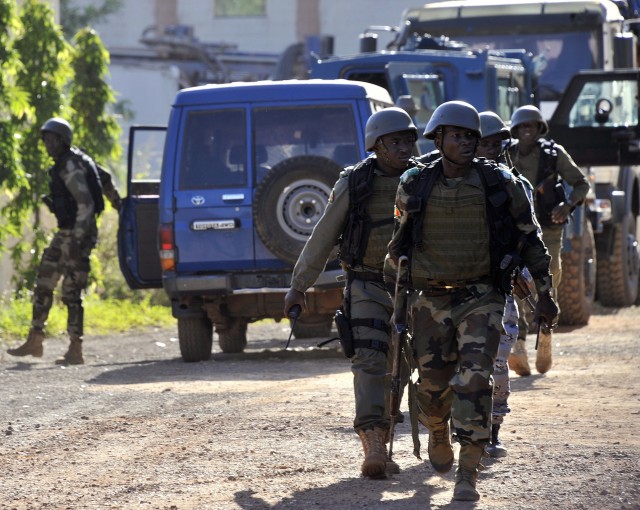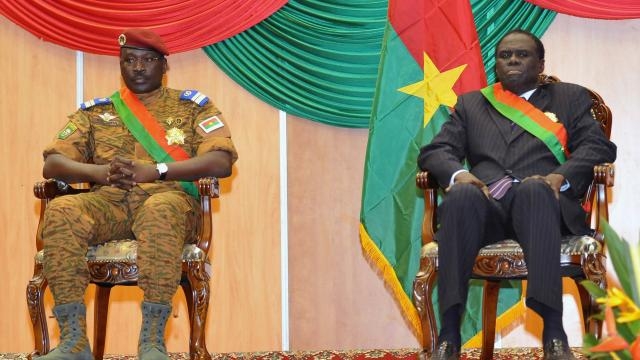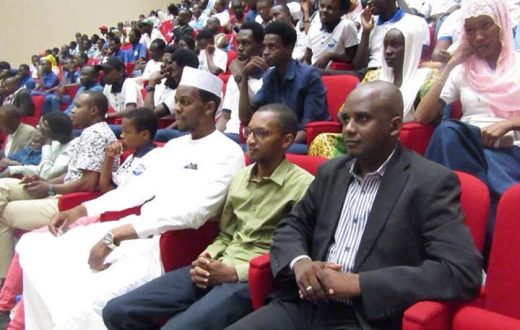Drones are gonna shape global military affairs. In the wake of the Japanese occupation of Korea in 1908, Theodore Roosevelt remarked saying:
“Korea is absolutely Japan’s. To be sure, by treaty it was solemnly covenanted that Korea should remain independent. But Korea was itself helpless to enforce the treaty, and it was out of the question to suppose that any other nation would attempt to do for Koreans, what they were utterly unable to do for themselves.”

In today’s world more than a century after, direct occupation of another independent country has lost all its appeals in the face of the cost and benefit of such adventure but powerful nations still go about their imperialistic expansion in another guise. One subtle way they do this is through military intervention and mutual bilateral defense agreement which provide access to naval and air facilities for the external power and establishment of military base. The new U.S drone war in Africa is a clear instance of such imperialist grandstanding. It only beats the imagination why the mindsets in many African countries never grow beyond supposing any other nation would attempt to do for them what they were utterly unable to do for themselves in an international system where nations act in self-interested ways.
African continent simmers with conflicts in different parts, from South Sudan to Central African Republic, Congo, and Nigeria ranging from low and high intensity-based wars instigated by ethnicity, religion and nationalism to conflict over resources. Many analysts have traced the root causes of these conflicts in part to the negative effects of economic globalization and the marginalization, exclusion and radicalization of the dispossessed segment of the population, the erosion of state authority and welfare security provision capacity and the resulting internal resistance that have led to state collapse and societal fragmentation. One grotesque manifestation of the new wars in Africa is the spread of terrorism and violent extremism.
In 1994, Robert Kaplan had warned that the West Africa’s ungoverned spaces, weak borders and impoverished masses had the potential to breed threats not only to states but to the continents of Africa as a whole. He further declared, “We ignore this dying region to our own risk.”
Nevertheless, if the African region is not to be ignored, the new U.S drone war still raises the question about what peace the continent is to achieve from such military escapade of the super power. Put in another way, what kind of peace is Pentagon committed to on the African soil. Is it the peace of removing, minimizing violence or the peace that allows for large scale resource extraction which requires strong geopolitical and military capacity? At present, U.S has drones stationed in Djibouti used for airstrikes in Yemen and Somalia. The MQ-9 Reapers located in the capital of Niger will soon be moved to the new facilities the U.S Air force is building at an existing Nigerien base in Agadez where the U.S military will begin flying armed drones in the coming month. US also flies unarmed surveillance drones from bases in Tunisia and Cameroon.
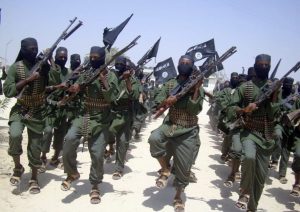
Patrick Bond wrote about a decade ago:
“Bridging sub-Saharan Africa and North Africa is another resource-rich sub-region of crucial importance to US imperialism. A site of future extraction lies between Northern Nigeria and Southern Algeria where the US multinationals Halliburton and Betchel have contracted gas pipeline options. The major petroleum prize remains the Gulf of Guinea. With Africa closer than the Persian Gulf to Lousiana’s oil processing plants the world’s shortage of supertankers is eased by direct sourcing from West Africa offshore oilfields.”
The kind of peace needed in Africa is such that must be conceptualized and perceived not only in the negative sense of minimizing or resolving conflict but also in the positive sense of creating material condition which provide for the mass of the people a certain minimum condition of security that include the freedom from fear and want, economic growth and development in a way that resource per capital increases and the resources are better distributed. Stationing drones in Africa to launch attack on targets in neighbouring regions will draw Africa into external conflict and endangers security in Africa. Michael Ignatieff who asserted that “America’s entire war on terrorism is an exercise in imperialism” once contended also that the imperialist activities of the US and its allies in the Middle East and part of North Africa has had a great effect on the conflict and spread of terrorism to Africa.
The use of drones in the claimed war against terrorism by the US is at best a reflection of viewing security as existing only at the level of the global or the national. However, marginalized populations living along border lands often rely on illicit networks and other shadow activities thereby undermining peace building process. This is a lesson Washington and those that trust her fight against terrorism never learnt from her several failed mission with the classical example of the intractable war in Afghanistan.
African statesmen must wake up to the need for African solution to African problem and never leave the duties they owe their people to any other nation. Ignoring the regional dimensions of violence and conflicts has the tendency of creating a balloon effect where instability is displaced from country to another. African leaders must have a growth mindset to see the larger picture beyond using the spectre of
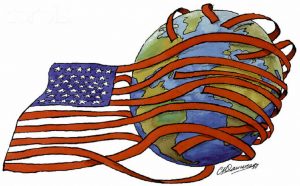
war and presence of a superpower as a cover to plunder the people’s resources unnoticed. They must realize their mandates as described by Henry Kissinger in his book diplomacy when he said:
“Intellectuals analyze the operation of the international system: statesmen build them…the analyst can choose which problem he wishes to study, whereas the statesman’s problems are imposed on him. The analyst can allot what time is necessary to come to a clear conclusion; the overwhelming challenge of the statesman is the pressure of time. The analyst runs no risk. If his conclusion proves wrong he can write another treatise. The statesman is permitted only one guess; his mistakes are irretrievable…the statesman must act on assessments that cannot be proved at the time he is making them; he will be judged by history on the basis of how well he managed the inevitable change and above all, by how well he preserves the peace”
Of course the peace to be preserved is not just the removal of organized group violence known as negative peace but also a commitment to an international system that is based on equality and absence of exploitation to allow for the growth and development of African countries.

